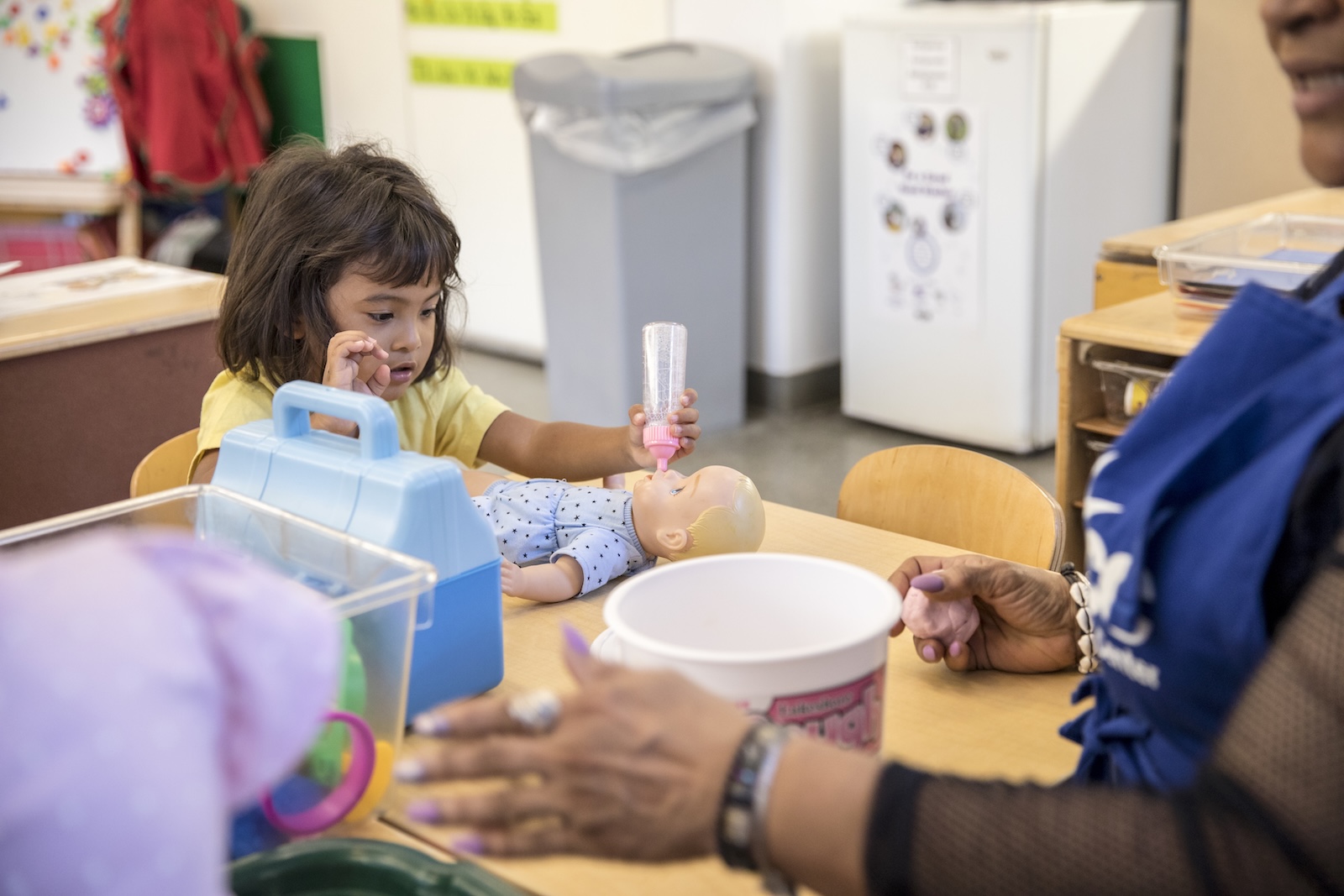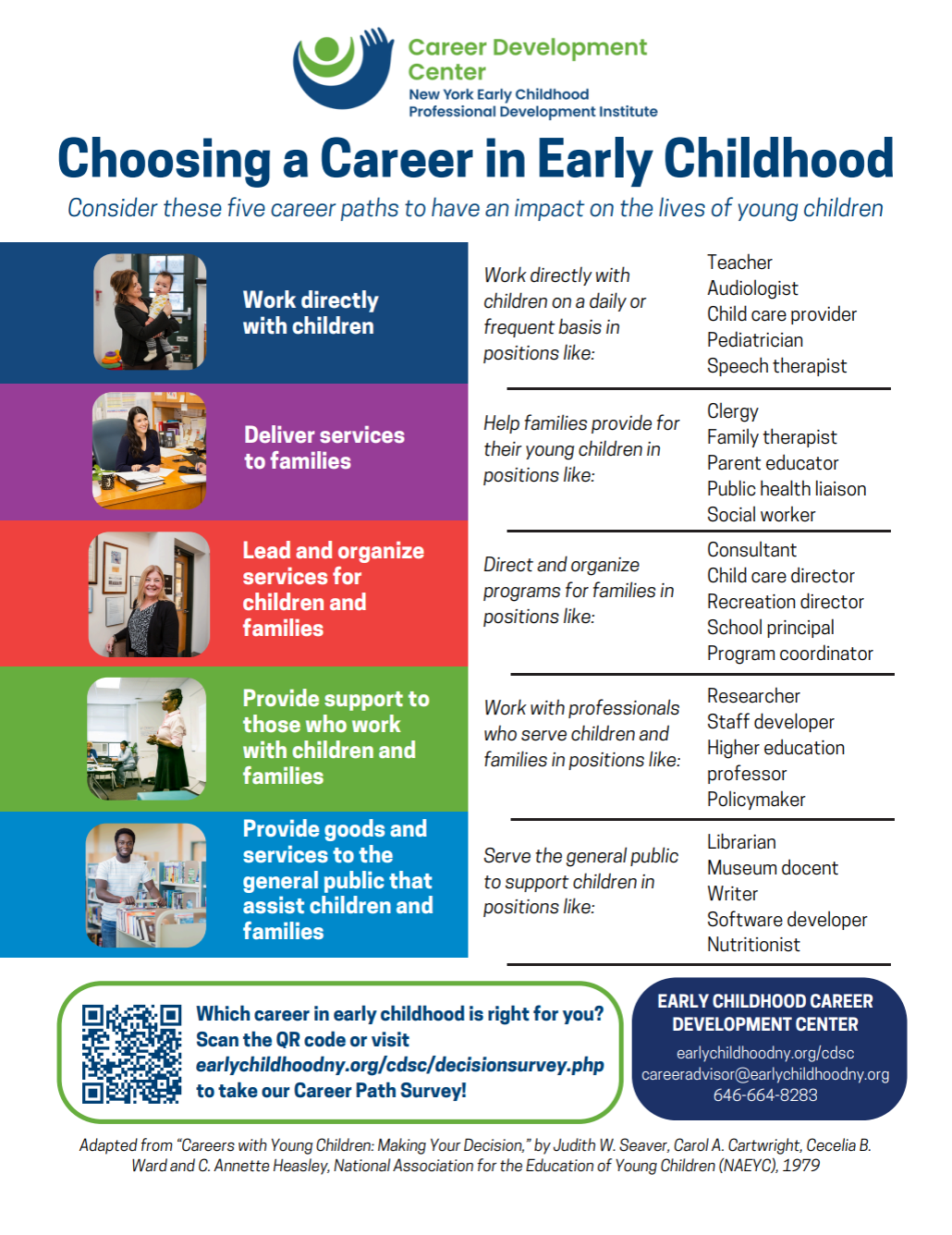Explore Career Paths In Early Childhood Education
Learn more about five major career paths five major career paths for people interested in working to have an impact on the lives of young children.
Do you want to discover which path may be the right fit for your? Consider taking our Career Path Survey, a short quiz that will help you find the early childhood career that best fits your interests and skills.

Career paths guide
Choosing a Career in Early Childhood
PDF • 1,432KBTake a quick look at the possible career paths to have an impact on the lives of young children.
Five career paths
Careers in a wide range of professional areas - including health, education, psychology, recreation and social service - involve working directly with young children. People in these careers also engage frequently with the families of young children and interact with other trained specialists and professionals who provide support services. For these careers, a strong liking for young children and the ability to interact with them competently is an absolute prerequisite.
Common Positions:
Professionals in these careers deliver services that have a direct impact on families, especially children. They collaborate with parents to support children and help adults realize their potential. They need to be able to work directly with families and alongside colleagues in agencies and organizations that offer family services.
Most professions in this category demand a moderately high level of professional training. Specialization is a common way for professionals to engage more frequently with families of young children. For instance, a social worker might focus on adoption, a public health nurse may specialize in child abuse cases, or a case worker might work with a community mental health center, counseling grandparents who are raising grandchildren.
Common Positions:
Professionals in these careers have strong organizational and leadership skills. Leaders build programs; hire, mentor, and support teachers; manage facilities; interact with and counsel parents; create and monitor budgets; and lead change efforts.
Common Positions:
Professionals in these careers are experts in various content areas related to programs and services for children and families. They provide support services and share information, strategies and skills with other professionals who work with children, families, agencies, services and programs that directly affect young children.
Professionals in these careers typically don’t interact directly with children or families, nor do they usually supervise others or administer programs. But many people who successfully pursue these careers have worked directly with young children in the past, which helps them provide realistic and practical advice to those they serve.
These careers include a wide range of professional interests that usually require extensive training, skills and knowledge in particular content areas.
Common Positions:
Professionals who work in these careers serve the general public, not just children and families - but in the course of their work, they provide goods and services that are particularly helpful to children, families and early childhood professionals. Most professionals in these careers have strong knowledge and skills in a particular area, and they may acquire skills and knowledge particularly relevant to young children in the course of their work.


